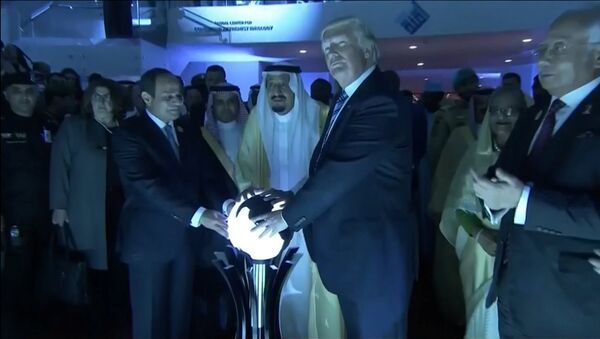According to the Bloomberg report that cited an anonymous US official, the Saudis and the UAE were preparing to march on Qatar during the summer. When Trump found out, he called the leadership in Riyadh and Abu Dhabi and urged restraint. He added that such a conflict would benefit Saudi Arabia's nemesis, Iran.
Trump denied that there was truth to the report at the United Nations General Assembly on Tuesday. He added that he was confident that the months-long diplomatic dispute between Qatar and the Saudi bloc could be "solved pretty quickly."
Qatari Emir Sheikh Tamim bin Hamad al-Thani praised Trump the same day, saying that the US president's "interference will help a lot." Bloomberg reported that at the General Assembly, Trump privately confronted al-Thani with evidence that Qatar is still sponsoring terrorism, which it must stop doing, in his words, to end the Saudi embargo.
The Saudis have also denied that military action was considered. A Saudi official told Bloomberg, "The allegations are entirely incorrect, have already been denied, and amount to nothing more than typically misleading Qatari propaganda."
In 2014, relations between the Saudis and the Qataris began to tense due to Qatar's ties to Iran. The Saudi bloc's latest allegations against Qatar include supporting groups such as Hamas, which is supported by Iran, and the Muslim Brotherhood, both of which are broadly opposed to the kingdom, as well as terrorist groups such as al Qaeda and the al-Nusra Front. Qatar has denied allegations that it is a state sponsor of terror.
Relations drastically declined after the May 2017 Riyadh Summit, where Trump and the House of Saud announced a strong partnership against Iran, which they singled out as a supporter of terrorism. In June, Saudi Arabia, the UAE, Egypt, Bahrain and Yemen cut diplomatic ties with Qatar and instituted an embargo.
On August 24, Qatar announced that they were restoring full diplomatic relations with Iran. Trump, who initially supported the Saudi blockade, has since attempted to defuse the situation to prevent Qatar from further pivoting towards Tehran. He has reportedly called almost all key actors in the dispute and tried to convince them that it benefited only one government: their mutual enemy, Iran.
"Thank God, what's important is that we stopped any military thing," said Kuwaiti Emir Sheikh Sabah Al-Ahmed Al-Sabah earlier in September in reference to the conflict. Sabah has acted as a mediator for the dispute, as Kuwait has remained neutral in the Gulf conflict.
The Saudis replied that a "military solution was never and will never be on the table."




